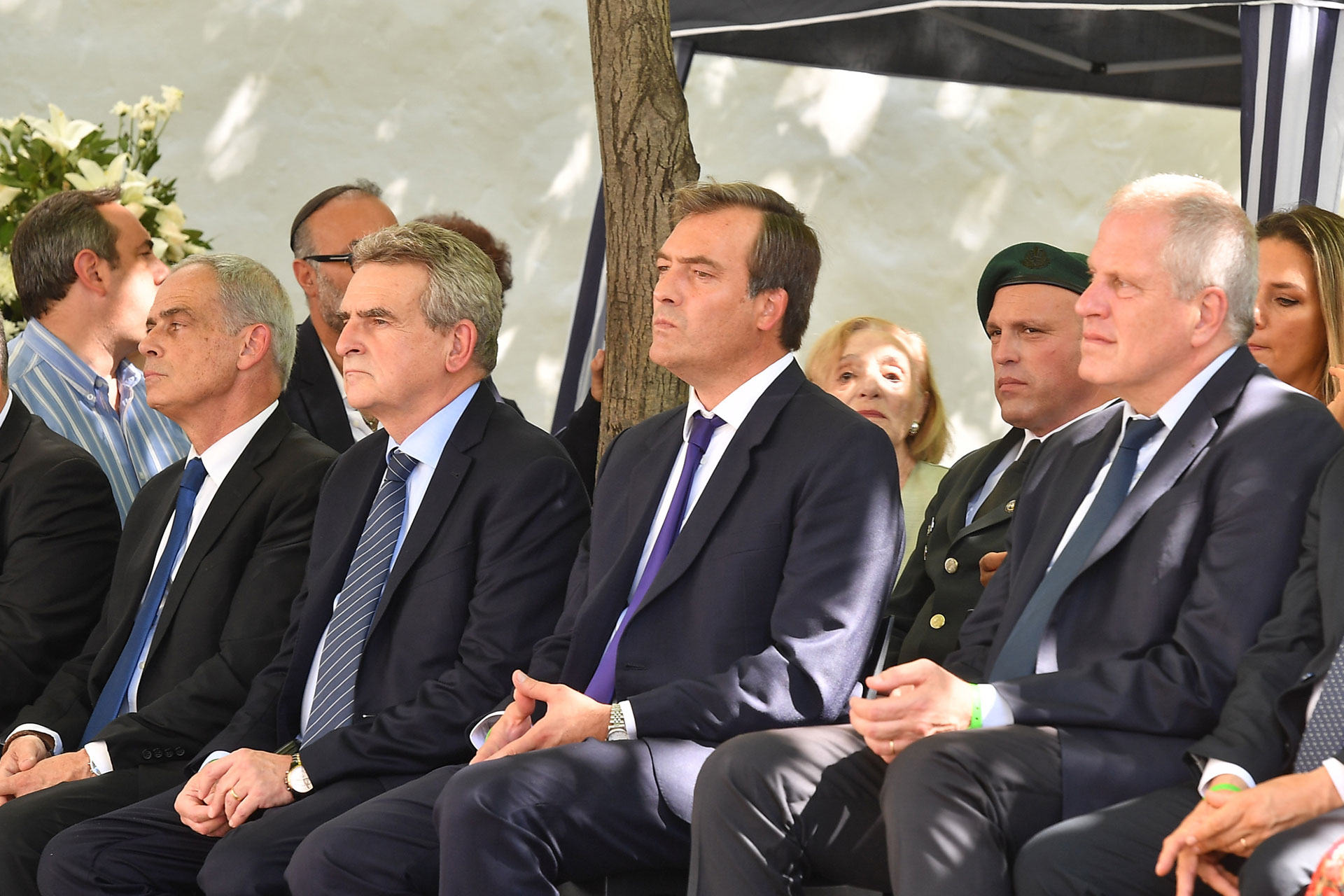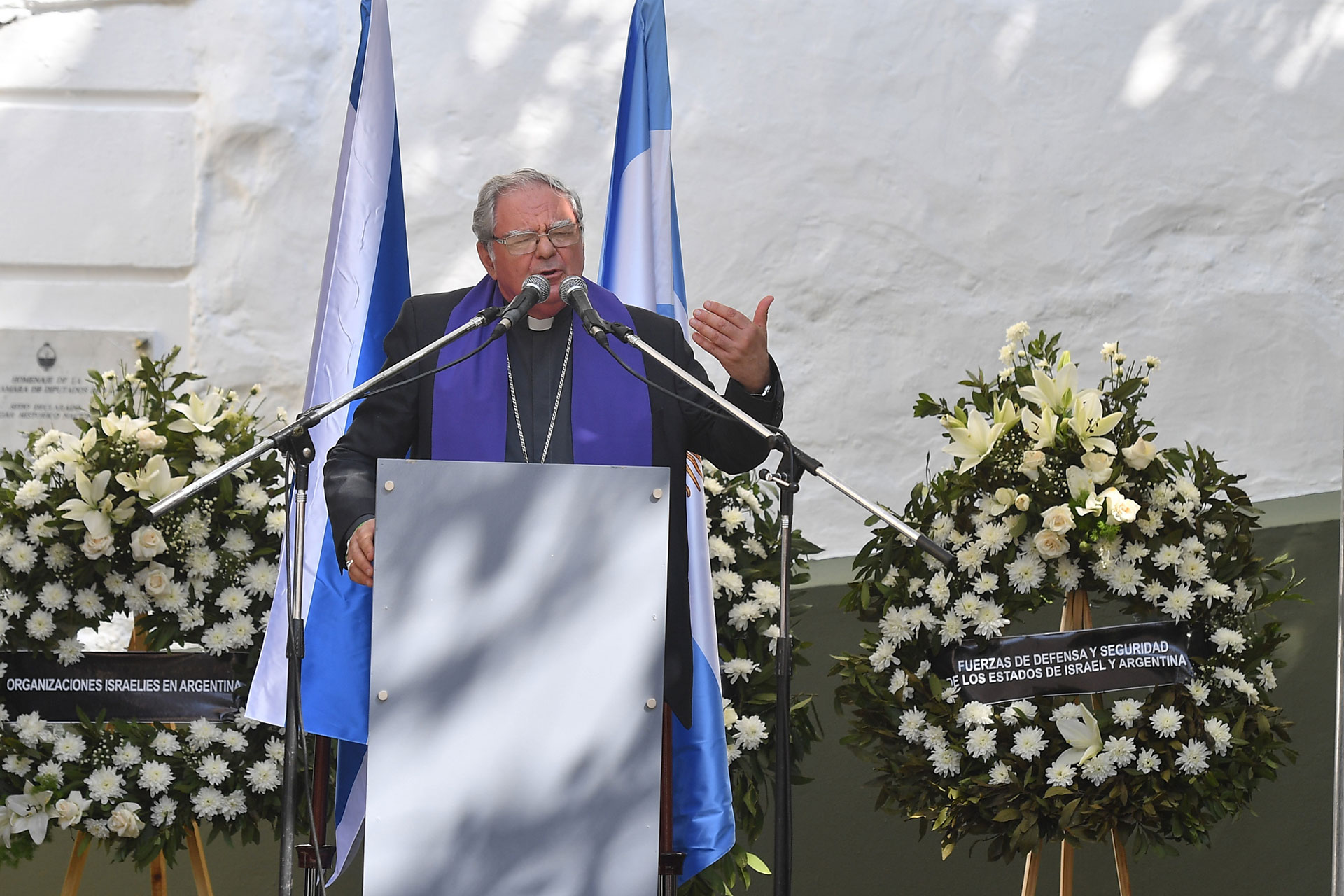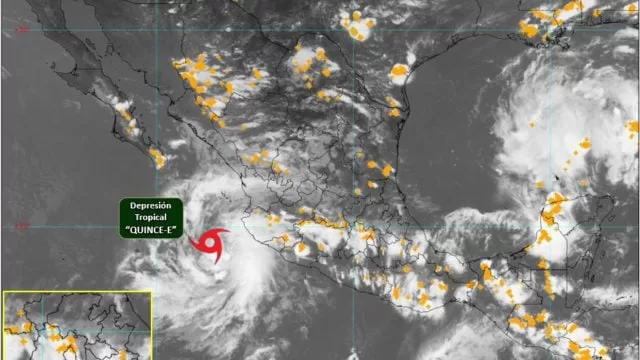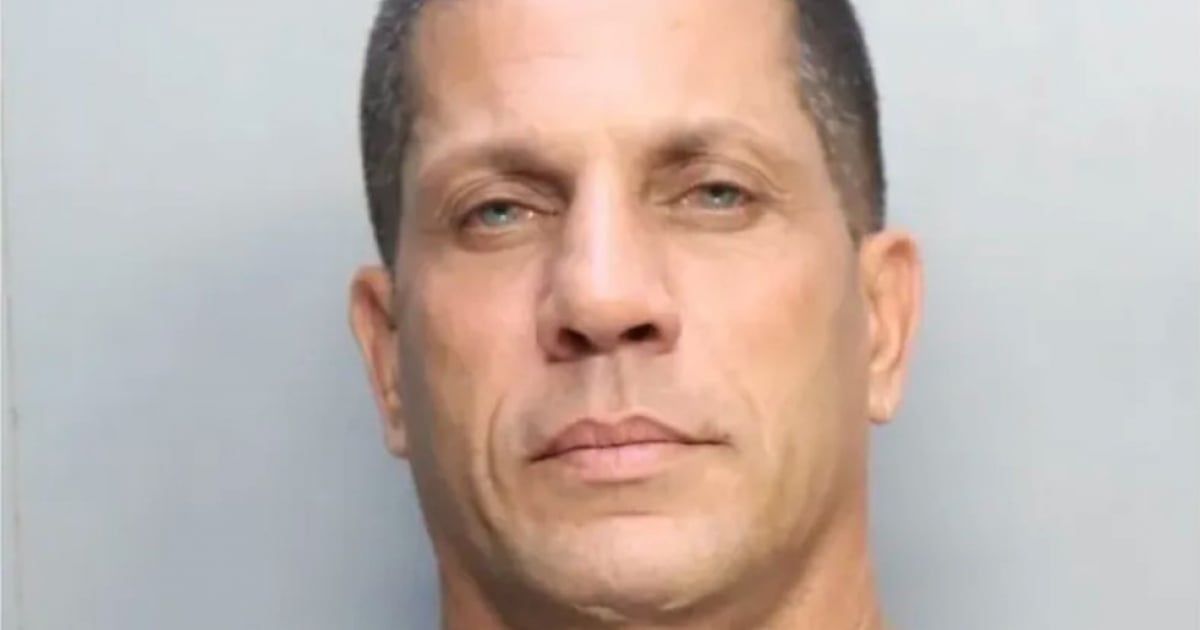Under scorching heat, but in the shade of the lime trees that were planted to honor the victims, the diplomatic representation of Israel in the country commemorated this afternoon, once again, the attack on the Embassy where 29 people died and another 200 were injured. Faced with representatives of the national government, Buenos Aires, and the opposition, the survivors and relatives of the murdered persons once again insisted on the eternal demand for justice for the terrorist attack, which still unpunished after 31 years. Surprisingly, no member of the Judiciary attended, although they were invited.
The act in the dry square of Arroyo and Suipacha, especially moving at the moment when the bells rang and the siren at the time the bomb exploded, was also charged with politics. Seated in the first row, on one side were the representatives of the government of Alberto Fernandez: the chief of staff, Augustin Rossi; and the justice ministers Martin Soria; Education, Jaime Perzcyc; Job, Kelly Olmos; and Transportation, Diego Giuliano. On the other, some leaders of the opposition: the Minister of Government of the City, Jorge Macri; the Secretary of International Relations of the City, Fernando Straface; radical leaders Facundo Manes and Carolina Losada; and the former senator of Pro, Federico Pinedo, among others. The Minister of Transportation of the Nation, Diego Giuliano.
It was expected that it would be the head of the Buenos Aires Cabinet, Felipe Miguel, but in the end he did not attend. Neither were the chancellor, Santiago Cafiero, nor the Minister of the Interior, Eduardo “Wado” de Pedro, respectively, direct allies of Alberto Fernández and Cristina Kirchner, who had attended the 30th anniversary last year. The first, they reported around him, could not be because he was in Uruguay to meet his partner, Fernando Bustillo. The second did not give reasons for his absence.
In addition, the Embassy had invited, as Infobae was able to reconstruct, members of the Judiciary, including Supreme Court magistrates, but they did not attend. Only one member of the Highest Court sent a letter apologizing for not being able to attend, where he stressed the importance of evoking the meaning of the attack.

The strongest speech was given by Alberto Kupersmid, who experienced the attack firsthand and helped look for survivors among the rubble that dark afternoon. In front of the lectern, in the place where the Embassy building stood 31 years ago, he addressed “politics” and “Justice” directly, for “the lack of response to clarify the facts.” “What did they do, what are we going to do?” He questioned them. And he asked that the law that requires that the history of the attack be studied in schools be complied with, to “keep the memory.”
“What happened with the investigation, with the follow-up subcommittee, with the local connection, with the purchase of the truck, with the explosives?” he insisted.
Next, it was the turn of the Minister of Justice, Soria, to speak, who answers to Vice President Cristina Kirchner, a leader widely questioned by the Jewish community, among other reasons, for the signing of the memorandum with Iran, and for the death of the prosecutor of the UFI AMIA, Alberto Nisman. In front of the ambassador, Eyal Sela, he also made references to the attack on the Argentine Israelite Mutual Association (AMIA).

Soria spoke, first of all, of “the responsibility of the Argentine State for not preventing, not investigating, not punishing the guilty.” And then he pointed against “some powers”, in reference to Justice, for the failures that prevented those responsible from being found and punished. And in the central section, he attributed the attack to Hezbollah, but avoided holding Iran directly responsible, unlike the position of Israel, which blames that country for the attack. He limited himself to blaming Iran for the “lack of collaboration” to find the ideologues and perpetrators of the crime.
Soria said that he was there to “render accounts” about the actions of the national government to heal “the wound” open 31 years ago. He recalled that last October, the Argentine State recognized that the bombing of the AMIA headquarters “would not have been possible if the attack on the Embassy had not gone unpunished.” And he added: “The assumption of responsibility should not be a consolation, but a necessary step to twist the inertia of Justice and impunity.”
In this sense, he criticized the previous national administration: “We have reactivated, re-hierarchized, removed from the degradation in which the special investigation unit of the attack that occurred two years later had been submerged, the AMIA, which historically functioned in the Ministry of Justice of the Nation. Thus, we assume a commitment to clarify the fact and condemn those responsible, ”he said. When he finished his speech, he only received courteous applause.
Keep reading:
.


